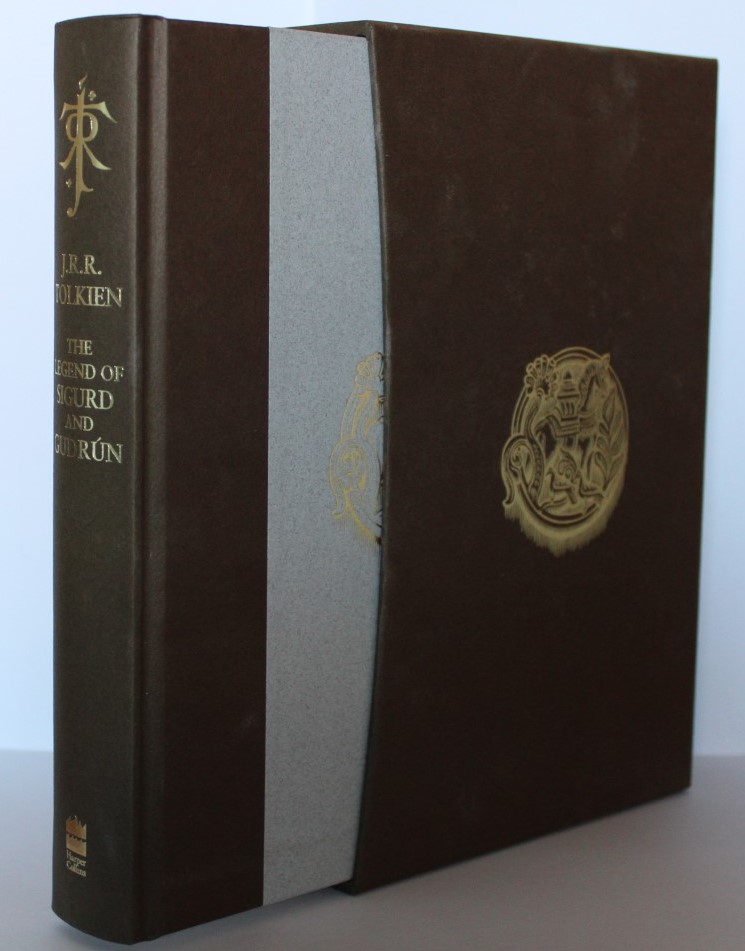I don't care about the law on this one. If this library successfully argue that they own the book after all these years, while likely doing nothing to have the book returned when it was not valuable but now want it back because it is worth money, I imagine auctions will think twice about selling books with library stamps on them. I also stand very much with the dealer or person who likely bought the book in good faith.
I hope this goes nowhere.
I hope this goes nowhere.
Everyone has made some good points on this thread and I feel like this sale is just an unfortunate situation no matter how it is resolved.
I don't know whether the library made any effort to get the book back, but I have no doubt that the seller bought the book in good faith from wherever they got it.
However not returning a book to a library, regardless of the reason, is stealing...there's no doubt about that.
I don't know whether the library made any effort to get the book back, but I have no doubt that the seller bought the book in good faith from wherever they got it.
However not returning a book to a library, regardless of the reason, is stealing...there's no doubt about that.
I agree that it's possible that no one acted in bad faith in this matter. (Though of course a borrower DOES agree to return a book within a period of time; and if they fail to do so, they have breached the contract, regardless of the reason.)
Nonetheless, I find it interesting that most people seem to dismiss the rights of the obviously rightful owner of the book, sc. the library.
Why is it better for the ultimate seller of the (apparently) ill-gotten gain of the (apparently) unreturned book to realize their gains — bad faith or no — than it is for the (apparently) actual owner of the book, i.e. the library, to do so? How many books might have been obtained by that library with that gain? Certainly the auction house had the ability to investigate and verify the chain of ownership in this case. Does that count for nothing?
What about a compromise, where the auction-seller agrees to share the realized profit of the sale with the library? Wouldn't that be just, regardless of what the courts decide? (Unless of course it can be established that the library sold or otherwise deliberately relinquished ownership of the book.)
Nonetheless, I find it interesting that most people seem to dismiss the rights of the obviously rightful owner of the book, sc. the library.
Why is it better for the ultimate seller of the (apparently) ill-gotten gain of the (apparently) unreturned book to realize their gains — bad faith or no — than it is for the (apparently) actual owner of the book, i.e. the library, to do so? How many books might have been obtained by that library with that gain? Certainly the auction house had the ability to investigate and verify the chain of ownership in this case. Does that count for nothing?
What about a compromise, where the auction-seller agrees to share the realized profit of the sale with the library? Wouldn't that be just, regardless of what the courts decide? (Unless of course it can be established that the library sold or otherwise deliberately relinquished ownership of the book.)
My view is that the book remains the property of the library. If you buy a stolen car, it does not cease to be the rightful property of the person it was stolen off (or their insurer). There is a reason libraries stamp their books when they are removed from circulation and sold off/otherwise disposed of.
If we move away from the original owner continuing to be the lawful owner of a piece of stolen property, just by virtue of a recipient of the stolen goods having sold it on, the entire concept of property rights is tossed out of the window.
I'm surprised by some of the views being expressed here, to be honest. What if it was books from your collection that were stolen and later sold?
If we move away from the original owner continuing to be the lawful owner of a piece of stolen property, just by virtue of a recipient of the stolen goods having sold it on, the entire concept of property rights is tossed out of the window.
I'm surprised by some of the views being expressed here, to be honest. What if it was books from your collection that were stolen and later sold?
I certainly agree that the book belongs to the library (until it discards it officially, which seems pretty clear never happened in this case).
I wouldn't be surprised if the auction house is held liable, in some fashion, for not validating title to the book in this case. If the court grants title back to the library and returns the book to them, the Tennessee buyer would go after the auction house to recoup the money they spent. The auction house might be able to then go after the seller for providing false title, but that's where it would (in my mind) probably fall apart and the auction house would be out whatever the Tennessean recovered from them.
I wouldn't be surprised if the auction house is held liable, in some fashion, for not validating title to the book in this case. If the court grants title back to the library and returns the book to them, the Tennessee buyer would go after the auction house to recoup the money they spent. The auction house might be able to then go after the seller for providing false title, but that's where it would (in my mind) probably fall apart and the auction house would be out whatever the Tennessean recovered from them.
Just took a random stab at property theft via Google searches (so, major grains of salt for anything I am about to say).
It looks like as long as one is in possession of stolen goods, a crime is still ongoing so there is no statute of limitations kicking in. That’s different from being the thief (stealing) but the court should still be able to seize and restore the book (or car or whatever) to the proper owner.
It looks like as long as one is in possession of stolen goods, a crime is still ongoing so there is no statute of limitations kicking in. That’s different from being the thief (stealing) but the court should still be able to seize and restore the book (or car or whatever) to the proper owner.
Urulókë wrote:
Just took a random stab at property theft via Google searches (so, major grains of salt for anything I am about to say).
It looks like as long as one is in possession of stolen goods, a crime is still ongoing so there is no statute of limitations kicking in. That’s different from being the thief (stealing) but the court should still be able to seize and restore the book (or car or whatever) to the proper owner.
This is about that I expected. I have never heard of a statute of limitations with regards to stolen goods in the UK.
Urulókë wrote:
Just took a random stab at property theft via Google searches (so, major grains of salt for anything I am about to say).
It looks like as long as one is in possession of stolen goods, a crime is still ongoing so there is no statute of limitations kicking in. That’s different from being the thief (stealing) but the court should still be able to seize and restore the book (or car or whatever) to the proper owner.
I stand corrected! Aelfwine's suggestion to share the profits seems to be the most equitable and fair.
Edit: Come to think of it, there's not really a whole lot of difference between this and stolen archaeological or cultural artifacts getting plundered, languishing in a private estate for however many decades, then auctioned off for millions. Ill-gotten gains indeed! Whether or not the original borrower intentionally failed to return the book, I suppose, is immaterial.
Guess I've just done a 180° on this one, but I can't help but feel bad for whoever ended up with the book.
















 2736
2736 1590218
1590218